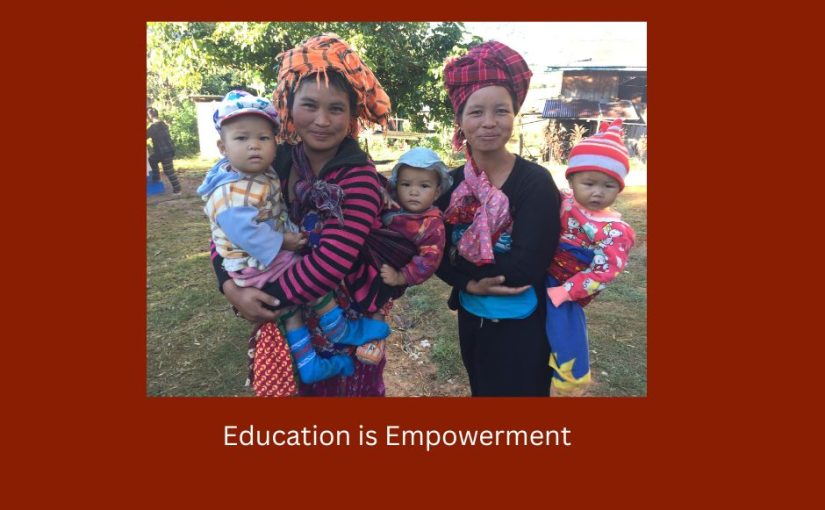Most community members, particularly women, in rural Myanmar villages lack adequate knowledge of family planning. A lack of effective child-care practices, difficulties obtaining healthcare services, too many children with insufficient space, and malnutrition all contribute to elevated morbidity and mortality among children, as well as an increased family burden to care for them.
Nang Nu Kyi, 32, has a 5th-grade education and lives in Hte Whr Muu village in Taunggyi township with three other family members. She has two children, ages 8 and 13, who are in the second and fifth grades at Hte Whr Muu Village School. Her husband is 34 years old, and their main business is growing cheroot leaves and raising pigs.
“Before the training, I didn’t really understand anything about women’s health, including regular periods, how to care for children, and how to care for women throughout their pregnancy, which I dared not even speak about.” I also thought it was awful that the girls received their periods. “Now that I’ve had the training, I understand and can discuss issues concerning women’s health and reproduction,” Nang Nu Kyi highlighted her outcomes.

Nan Nu Kyi attended a three-day training session for village health educators (VHE) given by Shanta’s Health Project, where she learned about reproductive health. She went on to educate 30 women ranging in age from 14 to 60. She is now a member of the local health committee thanks to her leadership in these small group discussions.
Nan Nu Kyi used to use old fabrics for her monthly period because she was embarrassed to buy sanitary pads, but she has overcome that stigma and maintains her menstruation cycles with sanitation in mind. Furthermore, she is no longer as hesitant to use contraception and consults openly with her spouse. “I only found out about birth control, emergency pills, and how to prevent pregnancy using condoms after attending the training,” she explained.
Three women who participated in Nan Nu Kyi’s group discussion also expressed how they feel and how their knowledge grew:
“In the past, I didn’t even know how to not be pregnant, and I kept giving birth to more babies,” Nang U Pin, 33, explained. Now, I know how to avoid that, so I get a 3-month birth control injection from the nurses, and I feel secure.”
“After attending the training, I know for sure the reasons for having periods, getting pregnant, and learned how to take care of myself during pregnancy, and will apply all knowledge and techniques we learned from the training into practice,” Nan Sein Kyi, 18, said.
“Before, I had no idea it was necessary to rest for up to 45 days after giving birth and to use contraception immediately afterward. And I’d only heard of pills and injections as ways of contraception. However, during the training, I learned about additional options, such as emergency medications and condoms,” Nan Eoot, a 30-year-old woman, shared.

